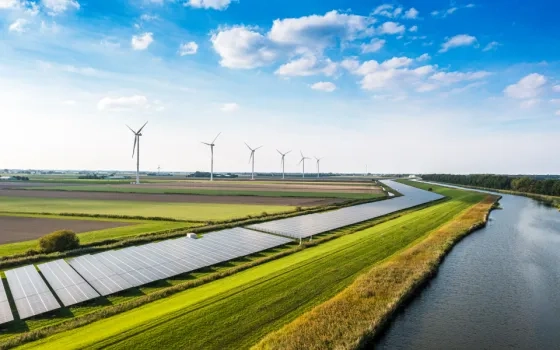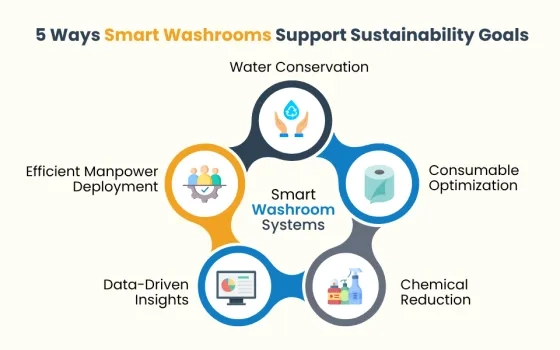In recent years, significant global events ranging from the COVID-19 pandemic to Brexit, as well as conflicts and economic crises have evolved into complex, multifaceted challenges. These events have fundamentally altered our approach to managing emergency situations and reshaped the global response. While COVID-19 pandemic required immediate attention and was addressed with the highest level of precautions and technology, other challenges remain dormant and do not appear to be getting resolved any time soon.
Climate change, despite its profound significance, often finds itself outside the primary focus of individuals, organizations and governments. Primarily, there is a fundamental challenge in comprehending the intricacies of climate change, including its origins and the specific roles played by various stakeholders, be it corporations or individuals. I intend to address this challenge in this article by delving into the fundamental questions that surround climate change – from its nature to the roles of corporations and individuals in combating this critical issue.
The challenge of climate change
The fundamental of climate lies in the concept of energy equilibrium. The sun stands as the principal energy provider for our planet and the critical factor determining temperature is the net energy balance between solar radiation received by the Earth and energy radiated back into the solar system. The Earth absorbs approximately 340 watts per square meter of solar energy, while roughly 240 watts per square meter are emitted back into the solar system. This difference in energy exchange is the driving force behind Earth's average temperature of 14 degrees Celsius.
The greenhouse effect plays a crucial role by trapping the energy that reaches Earth, thus preventing it from escaping back into the solar system. This phenomenon occurs due to the presence of greenhouse gases and cloud cover. Without this effect, our planet's temperature would plummet to a frigid -19 degrees Celsius.
Climate change is principally characterized by an imbalance in the solar energy absorbed and emitted by Earth. Unfortunately, this imbalance is primarily intensified by human activities, which result in the excessive release of greenhouse gases into the environment thereby causing a reduction in the Earth's natural green cover. This cover plays a crucial role in absorbing greenhouse gases particularly CO₂. Consequently, this process hinders the escape of energy back into the solar system. In simpler terms, this leads to an overall increase in Earth's average temperature, more commonly referred to as global warming.
According to a special report by The Intergovernmental Panel on Climate Change (IPCC), the failure to take substantial measures today will result in a considerable global temperature imbalance by the year 2100, potentially warming the climate by 4-degrees Celsius. To address this impending challenge, the Paris Agreement aimed to limit global warming to below 2-degrees Celsius above pre-industrial levels, and with an additional aspirational target of 1.5-degrees Celsius as per the data from the UN. However, it is essential to note that achieving these goals does not guarantee a complete solution to the broader issue of climate change control.
To meet the objectives of the Paris Agreement, separate calculations indicate the total allowable carbon emission budget must be maintained at 840 gigatons (GT). Unfortunately, over half of this allocation, specifically 531 GT, has already been exhausted. At the current rate of emissions, we are on track to surpass the target well before 2050, and this deadline is less than three decades away.
The key factors driving climate impact are diverse and multifaceted, varying not only by industry or sector but also by geographical location. Three sectors collectively account for more than 70% of the world's total carbon footprint:
- Energy: Energy is a fundamental component of our daily lives, which concurrently bears the responsibility for 32% of greenhouse gas emissions. Notably, the real estate sector, encompassing both commercial and residential properties, emerges as a key consumer of energy resources, relying on sources such as electricity and natural gas.
- Agriculture, forestry, and land use: Responsible for 17% of global emissions, this sector primarily generates greenhouse gases through agricultural activities, including the cultivation of crops and livestock. Additionally, deforestation contributes to emissions within this sector, while meat production emerges as a significant factor in the carbon footprint equation.
- Transportation: Transportation emissions result from the combustion of fossil fuels in road, rail, air and marine transportation systems. Approximately 17% of global emissions can be attributed to this sector, with aviation being a notable contributor, responsible for 3% of the world's total greenhouse gas emissions.
Contribution of business organizations to climate change
Every individual, in one way or another, contributes to global warming. However, the silver lining is that we can also influence and lead the charge against climate change. Most importantly, understanding the pivotal role the corporate sector can play in addressing climate change is essential, given that their collective impact has the potential to surpass the combined contributions of global governments. To delve deeper into this, let us examine the data below.
As per UN reports, the global economy thrives on a staggering volume of economic activities, estimated at approximately US $85-90 trillion annually, whereas annual investments dedicated to fostering sustainable practices and environmental conservation currently stand at only US $2.5 trillion. This represents a mere 2-3% of the vast economic activities that power our world. Bridging this substantial investment gap is not just an environmental necessity but a critical economic imperative as well.
The ten largest corporations in the world generate revenues that exceed the combined revenues of 180 out of 195 countries' governments. In fact, among the top 100 economic entities globally, only 30 are countries, while the remaining 70 are business corporations. Imagine the collective efforts of these corporations and their employees uniting in the battle against the climate crisis, potentially making the task more manageable.
While the largest corporations generate substantial profits, the critical need for incorporating climate control strategies into their corporate agendas cannot be overstated. Neglecting to do so may result in a future where these hard-earned profits must be channeled into addressing even more unwanted challenges. Therefore, it is essential for businesses to recognize that addressing climate change is not only a moral imperative but also aligns with their long-term goals and purpose.
The role of corporate sector in improving climate change
In exploring the vital role the corporate sector can play in addressing climate change, it is essential to consider how corporations can actively implement alternatives to reduce carbon emissions and, in turn, inspire others to follow suit. The strategies outlined below are the result of extensive research in this field, offering a roadmap for meaningful action and impact.
1. Energy
- Invest in renewable energy: Whether as energy producers or consumers, we must demonstrate our unwavering commitment to energy efficiency by setting specific renewable energy targets, such as producing or sourcing a certain percentage of electricity from renewables.
- Conserve energy: A back-to-basics approach includes encouraging energy conservation through measures like turning off lights, procuring energy-efficient equipment and optimizing building insulation.
2. Agriculture, forestry, and land use
- Promote sustainable agriculture: The future of farming lies in sustainable practices. Supporting local communities in adopting sustainable agriculture, cultivating adapted and indigenous crops, and curbing deforestation are essential steps.
- Adopt sustainable food practices: Our mission includes advocating for sustainable food production through food waste reduction, consumption of locally sourced goods, reduced meat consumption, and ethical food production.
3. Transportation
- Promote and adopt climate-friendly practices: Reducing transportation demands, promoting electric vehicles, and encouraging recycling are key actions. Additionally, we can opt for eco-friendly alternatives like biking, walking, public transportation and carpooling to minimize emissions.
- Rethinking air travel: While aviation is indispensable for corporate travel, it is high time we evaluate essential versus avoidable air travel, given its substantial carbon emissions.
4. Other measures
- Invest responsibly: Balancing economic growth with environmental responsibility is crucial. We must initiate and boost investments in sustainable initiatives, support eco-friendly brands and products, and demand sustainable procurement in our business operations.
- Assess greenhouse gas emissions (GHG): As both corporations and individuals, assessing our carbon emissions serves as an inspiration for others to follow suit.
- Reduce, reuse, and recycle: Cultivating a culture of recycling, reusing, and reducing single-use plastics while minimizing waste is integral.
- Compensate carbon emissions: Acknowledging our role in reducing carbon emissions, we can invest in projects that promote carbon neutrality and endorse leaders who prioritize climate action.
- Advocate for change: We must raise our voices and engage with local and global leaders to champion comprehensive reforms in climate legislation, plastic-free products and adopt sustainable practices.
Climate action and the future road map
The notion that someone, somewhere will singlehandedly tackle the challenge of climate change is a myth. The reality is that we all must be active participants. Climate change constitutes a global emergency, demanding immediate and sustained action. To reduce emissions, transition to cleaner energy sources and embrace sustainable practices, cooperation between governments, corporations and individuals is essential. By confronting climate change together, we have the chance to construct a future that is resilient and sustainable for generations to come.
In essence, corporates have a responsibility to be stewards of environmental sustainability. By adopting and promoting environmentally sustainable practices, they can make meaningful contributions to mitigating climate change while fostering a business environment that prioritizes both profit and planet.
The time for action is now!
About the author:

Manoj Madaan
EY GDS Global Operations Enablement Leader
Manoj is a professionally qualified chartered accountant, company secretary, commerce graduate from Shri Ram College of Commerce and an Executive coach with certifications from accredited institutes.
He is a trusted business advisor with extensive experience of over 20 years in all finance and accounts and business operations domains.
For over the last 13 years, he has been working with EY Global Delivery Services and currently holds the position of Global Operations Enablement Leader.
Personally, he likes writing poems, articles on a variety of topics. He is also very enthusiastic about wellness agenda (Mental, health and financial) for himself and the people around him.
Disclaimer: The views reflected in this article are the views of the author and do not necessarily reflect the views of the global EY organization or its member firms.


















